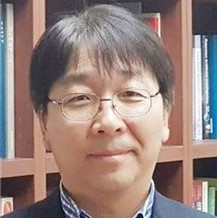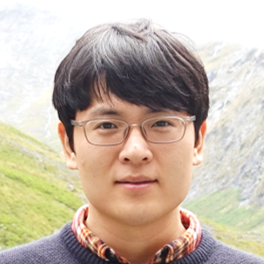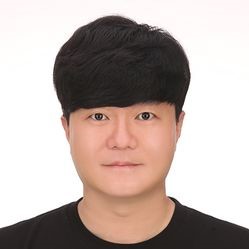Future Impact of AI in Real-World Applications
ACPR 2021 Workshop, Jeju Island, Korea

Introduction
The workshop will focus on various area of future impact of AI. The aim of this workshop is to bring researchers and scientists from academia, medical area with engineers from industry together to discuss about various impact of cutting-edge technologies of AI in future society. The workshop will take a deep dive into the capabilities of Edge Insights for Academia and Industrial via a tutorial utilizing real-world AI applications. For example, breast cancer can be detected via smartphone level infrared camera for detecting lesion and target mass at home. Despite the existence of some commercial AI systems such as autonomous vehicle, we are at the beginning of a long research pathway towards a future generation of deep AI. The workshop focuses on numerical and computational aspects of future impact of AI and on these relations to various AI techniques.
Call for papers
We welcome submissions on the following topics, including but not limited to:
Important Dates
| Paper Submission Deadline | October 10, 2021 (23:59 Pacific time) |
| Notification to Authors | October 17, 2021 |
| Camera-Ready Deadline | October 24, 2021 |
| Workshop Date | November 12, 2021 (Afternoon) |
Submission
Extended Abstracts: Participants are encouraged to submit preliminary ideas that have not been previously published in conferences or journals. We also invite papers published in other conferences and journals (2021 only) to facilitate new collaborations. Submissions may consist of one page abstract and one additional page for references (using the template described above). The expanded abstract will be posted on the website only during the workshop period.
All the papers should be submitted to workshop chairs, Prof. Lee (segeberg@kmu.ac.kr) and Prof. Ko (niceko@kmu.ac.kr)
Workshop Schedule
| # | Time | Item | |
|---|---|---|---|
| 1 | 13:00pm - 13:05pm | Opening Remarks (Prof. Jong-Ha Lee) | |
| 2 | 13:05pm - 13:40pm | Keynote Talk: Prof. Soo Hyung Kim (Chonnam National University) | |
| 3 | 13:40pm - 14:10pm | Keynote Talk: Prof. Chang-Hee Won (Temple University) | |
| 14:10pm - 14:30pm | Coffee Break | ||
| 4 | 14:30pm - 15:05pm | Keynote Talk: Prof. Suha Kwak (POSTECH) | |
| 5 | 15:05pm - 15:35pm | Keynote Talk: Prof. Chih-Chung Hsu (National Cheng Kung University) | |
| 15:35pm - 15:45pm | Coffee Break | ||
| 6 | 15:45pm - 16:55pm | Oral Presentation | |
| 15:45pm - 15:55pm | G2CN: Geometric Graph Convolutional Network for Facial Expression Recognition | ||
| 15:55pm - 16:05pm | Histological Image Segmentation and Classification Using Entropy-Based Convolutional Module | ||
| 16:05pm - 16:15pm | Vision Trnasformer Based Dynamic Facial Emotion Recognition | ||
| 16:15pm - 16:25pm | Development of a system capable of diagnosing and treating Alzheimer's disease: a technique experiment using cadaver | ||
| 16:25pm - 16:35pm | Remote Bio Vision: Perfusion Imaging Based Non-Contact Biosignal Measurement Method | ||
| 16:35pm - 16:45pm | Calibrating a Multiple-View Thermal Camera | ||
| 16:45pm - 16:55pm | Research on EfficientNet architecture-based systems and algorithms that can predict complex emotions in humans | ||
| 7 | 16:55pm - 17:00pm | Closing Remarks (Prof. Byoung Chul Ko) |
Invited Keynote Speakers

Chonnam National University
Survival Time Prediction for Cancer Patients based on Multi-Modal Medical Data
A deep learning approach for survival time prediction is introduced, which utilizes clinomics, radiomics, and pathomics for a cancer patient. Clinical examples for lung cancer cases show that the multi-modal approach is promising for precision medicine.

Temple University
Bimodal Imaging of Breast Cancer Using Profile Diagrams and Convolution Neural Network
PDFIn this talk, we will discuss a bimodal imaging system, which consists of tactile and spectral sensors. A Tactile Profile Diagram is a pictorial representation of the mechanical properties of the imaged tumor. A Multispectral Profile Diagram is a representative pattern image of the breast tissue’s spectral properties. To classify the profile diagrams, we employ the Convolutional Neural Network method. The human experimental results demonstrate the ability of the developed method to classify and quantify breast cancer. Finally, we describe a method to calculate Multimodal Index for the malignancy risk assessment using profile diagrams and health records.

POSTECH
Loss functions for Deep metric learning
PDFUnderstanding semantic similarity between images has played essential roles in many areas of computer vision. Deep metric learning aims to achieve this by training deep neural network that embeds images onto a manifold in which semantically similar images are closely grouped together; the semantic similarity between two examples are then directly estimated on the manifold using known distance metrics like Euclidean and cosine distances. Such a quality of the network is given mainly by loss functions used for training the networks. Most losses for deep metric learning are based on binary supervision indicating whether a pair of images are of the same class or not, which are readily available from existing large-scale datasets for image classification. The first part of this talk will introduce a new loss function that allows the embedding networks to achieve state-of-the-art performance and converge most quickly in the binary supervision case. Although the binary supervision is readily available from many existing datasets, it covers only a limited subset of image relations, and is not sufficient to represent semantic similarity between images described by continuous and structured labels such as object poses, image captions, and scene graphs. Motivated by this, the second part of this talk will present a novel loss for deep metric learning using continuous labels.
National Cheng Kung University
Multilinear Data Super-Resolution: 2D to ND
PDFWith the rapid growth of deep learning applications, conventional image restoration tasks such as super-resolution has made significant progress in recent years. Specifically, the convolutional neural network (CNN)-based super-resolution has achieved excellent performance, while many super-resolution networks were proposed to improve the fidelity and visual quality. In this talk, I would like to introduce the multi-perspective image super-resolution: from the structured facial (2-D) to hyperspectral (172-D) image super-resolution by exploring the image prior, the correlation between spectrum, and special tricks in CNN for super-resolution tasks. I will also make some open issues for further research on super-resolution tasks in this talk.
Accepted Papers
Organizers

Keimyung University

Keimyung University
Program Committee
Keimyung University
Keimyung University
Université du Luxembourg
University of Birmingham
Temple University
New York University
Yonsei University
ETRI
ETRI
ETRI
Youngnam University
Hanbat University
Inha University
DIGIST
Acknowledgments
This workshop is proudly sponsored by KMU(Keimyung University) Research Institute of AI fusion.
Contact
For any related question, please contact Prof. Jong-Ha Lee (+82-10-8968-8769, segeberg@kmu.ac.kr)